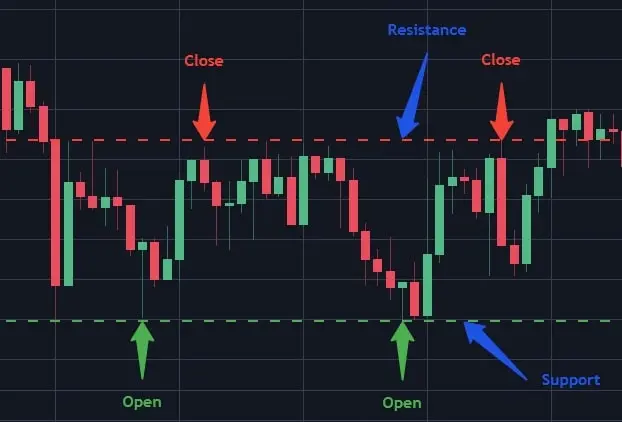Bitcoin options are an exciting part of the cryptocurrency market. They give you the choice to buy or sell Bitcoin at a set price on a certain date.
This means you can make a move whether you think the price will go up or down.
It’s a way to potentially profit from Bitcoin’s price changes without having to own the actual coins.
When you buy a Bitcoin option, you get the right, but not the obligation, to buy or sell Bitcoin in the future. This could protect you if the market moves in an unexpected direction.
Bitcoin options are financial tools that investors use to manage risk or seek profits in a volatile market.
Understanding how Bitcoin options work can open up more opportunities in your trading or investing strategies. They let you speculate on cryptocurrency prices and use advanced strategies similar to those in traditional financial markets.
Bitcoin options are a way to participate in the cryptocurrency trend with flexibility and potential profitability.
Understanding Bitcoin Options

Bitcoin options are contracts that grant the right, but not the obligation, to buy or sell Bitcoin at a set price. They’re used for managing risk and speculating on price changes.
Definition of Bitcoin Options
Bitcoin options are a type of financial derivative. They allow you to secure a price for buying or selling Bitcoin on a future date.
There are two main types of options: call options and put options.
A call option gives you the right to buy Bitcoin, while a put option allows you to sell it. These contracts are traded on exchanges and are priced based on factors like market volatility and the time until expiration.
The Function of Options in Financial Markets
Options play a crucial role in financial markets. They provide a way to hedge against potential losses or speculate on future price movements.
By using Bitcoin options, you can limit your risk or profit from changes in Bitcoin’s price without needing to own the cryptocurrency itself.
Traders often use them to take advantage of price fluctuations. You can benefit from your predictions about Bitcoin prices, whether you think they’ll rise or fall.
Options can be complex, but they offer flexibility and potential rewards for managing financial strategies.
The Mechanics of Bitcoin Options
Bitcoin options allow you to speculate on the price of Bitcoin without actually owning the cryptocurrency.
These options come with specific features like call and put options, contract specifications, and key terms such as expiry dates and strike prices.
Call and Put Options

Call options give you the right, but not the obligation, to buy Bitcoin at a predetermined price, known as the strike price, before the option expires. If you believe the price will rise, you may choose a call option.
In contrast, put options allow you to sell Bitcoin at the strike price. If you think the market will decline, a put option might suit your strategy. You’re not required to exercise these options if the market doesn’t favor you.
Options Contracts Specifications
Bitcoin options contracts specify the details of the trade. A standard contract will include the strike price, the size of the contract (often measured in Bitcoin), and the expiration date.
These contracts are traded on various platforms, each with their own rules and pricing models. Factors like market volatility and time to expiration can influence the contract’s price.
Expiry Dates and Strike Prices
Expiry dates and strike prices are critical.
The expiry date is when the option must be exercised by you or become worthless. You should pay attention to this date as it impacts your strategy.
The strike price determines the level at which you can buy or sell Bitcoin. Depending on your market view, you choose a strike price that you expect the market will meet or exceed.
Trading Bitcoin Options
When trading Bitcoin options, you need to choose the right platform and understand order types for execution.
You’ll also want to consider fees and the features each platform offers.
Platforms for Trading Options
Several platforms allow you to trade Bitcoin options. Some popular exchanges include Deribit, CME Group, and Bakkt.
These platforms might differ in terms of fees, user interface, and security features.
Deribit is known for its simple interface and high liquidity, ideal for both beginners and experienced traders.
CME Group caters more to institutional investors and offers options on Bitcoin futures.
Bakkt, operated by Intercontinental Exchange, provides trusted and regulated options, appealing to traditional investors.
Each platform has unique features, so choosing one depends on your trading style.
Order Types and Execution
When trading options, various order types are available.
You can use a market order to buy or sell at the current price for quick execution.
A limit order lets you specify a price, offering more control over the trade. This might not execute immediately but can secure a better price.
Another important aspect is understanding the timing of your trades.
Decide if you want to execute in real-time or wait for specific market conditions.
Being familiar with these order types helps in making informed decisions, which is crucial for successful trading.
Pricing Bitcoin Options
Understanding how Bitcoin options are priced is crucial for any investor. This involves analyzing multiple factors that influence option premiums and the models used to determine fair value.
Factors Affecting Option Premiums
The price of a Bitcoin option, also known as the premium, is influenced by several elements.
Volatility in the Bitcoin market is a major factor; higher fluctuations generally increase option premiums because of the greater chance of profit.
Time until expiration is another crucial factor. As the expiration date approaches, options lose value, a phenomenon known as time decay. Shorter timeframes often lead to lower premiums.
Interest rates can also affect pricing. Higher rates may increase call option prices while decreasing put option prices.
Finally, the underlying Bitcoin price relative to the strike price is vital. If Bitcoin’s market price is near the option’s strike price, the premium may be higher due to increased potential for profit.
Pricing Models
To evaluate Bitcoin option prices, traders often use various models.
The most common is the Black-Scholes model, which calculates the theoretical price based on factors like volatility, time until expiration, and risk-free interest rates.
This model assumes a normal distribution of returns and no early exercise on European options, which can limit its accuracy for some Bitcoin options.
Another important model is the Binomial model. It breaks down the option’s life into intervals and uses a tree diagram to compute potential values at expiration.
This model can be more flexible than Black-Scholes, especially for American options that allow for early exercise.
In some cases, traders might use Monte Carlo simulations.
This technique involves running multiple simulations to assess the possible outcomes and average prices.
It can be useful for complex options or for markets with irregular volatility patterns.
Strategies for Bitcoin Options

When trading Bitcoin options, there are various strategies you can use to manage risks or profit from market moves. These strategies can help protect your investments, take advantage of price changes, or generate income.
Hedging with Options
To protect your Bitcoin holdings, you can use options for hedging. This means you buy options to guard against potential losses if the price of Bitcoin falls.
For example, purchasing put options gives you the right to sell your Bitcoin at a certain price, minimizing potential losses.
This strategy provides a safety net, allowing you to maintain your holdings while reducing the risk of significant declines.
Another approach is the use of protective puts.
By buying a put option, you ensure you can sell Bitcoin at a predetermined price. This safeguards your assets in case the market drops sharply.
Hedging effectively keeps your holdings safe without having to sell your Bitcoin outright.
Speculative Strategies
If you want to try making a profit from market movements, you might consider speculative strategies.
One such strategy is the use of call options, which let you buy Bitcoin at a fixed price. You profit when the market price goes above the strike price.
This approach can be a way to benefit from upward trends without having to own the actual cryptocurrency.
A more complex speculative strategy is using a straddle, which involves buying both a call and a put option with the same strike price and expiration date.
This allows you to profit from large moves in either direction, though it’s more costly because you’re purchasing two options.
Speculative strategies depend on your ability to predict market changes accurately.
Income Generating Strategies
Selling options can be a way to earn income from your Bitcoin assets.
By writing covered call options, you sell call options while owning the underlying Bitcoin. If the option is exercised, you sell your Bitcoin at the agreed price, earning a premium in return.
This strategy is beneficial when the market is stable or slightly bearish.
Another income-generating tactic is the cash-secured put, where you sell put options and hold enough cash to buy Bitcoin if the option is exercised.
This approach allows you to earn premiums regularly while being prepared to purchase Bitcoin at a lower price if the market drops.
These strategies can be a useful way to gain steady returns in a sideways or slow-moving market.
Risks and Rewards of Bitcoin Options
Bitcoin options offer both exciting opportunities and significant challenges. They can allow you to leverage your investments and manage risk, but it’s essential to handle these tools carefully to avoid substantial losses.
Understanding Leverage and Margin
Leverage in Bitcoin options allows you to control a large position with a relatively small amount of capital. This can amplify both gains and losses.
For example, a 10x leverage means that a 10% change in the Bitcoin’s price could result in a 100% gain or loss.
While leverage can boost potential profits, it also increases the risk.
High leverage can easily lead to significant losses if the market moves against you.
You must be aware of the margin requirements, which is the collateral you must maintain in your account.
If your margin falls below the required level due to losses, you could face a margin call, which may force you to sell assets at unfavorable prices.
Risk Management Techniques
Effective risk management is crucial when dealing with Bitcoin options.
Setting stop-loss orders can help you limit potential losses.
Dividing your capital among several trades, instead of placing all your funds in one position, also helps reduce risk.
Using options to hedge your investments is another strategy. This involves holding opposite positions in options contracts to protect against adverse price movements.
Diversifying your option contracts across different expiration dates and strike prices can further spread risk.
Smart risk management involves regular monitoring of your positions and adapting strategies based on market conditions.
Regulations Governing Bitcoin Options
Bitcoin options, like other financial instruments, are subject to regulations that aim to protect investors and ensure fair trading practices. These regulations vary internationally and may impact how you trade and manage your investments.
Legal Framework and Compliance
Trading Bitcoin options requires compliance with financial regulations set by authorities such as the Commodity Futures Trading Commission (CFTC) in the United States.
You need to follow rules about market manipulation, fraud, and adherence to anti-money laundering (AML) standards.
Licensing is crucial, and platforms must ensure compliance with legal requirements to operate.
It’s important to verify that any platform you use for trading is properly licensed and regulated to protect your interests.
Failure to comply with these requirements can result in penalties and loss of trading privileges.
Cross-Border Regulatory Considerations
When trading Bitcoin options across borders, you face additional challenges related to differing regulations in each jurisdiction.
It’s important to understand how international rules may impact your trades.
Some countries may have restrictive laws that affect the availability or legality of Bitcoin options trading.
Additionally, discrepancies in regulations can affect tax obligations, reporting requirements, and legal recourse.
You must be aware of these differences and plan to ensure compliance in all regions where you trade.
This understanding helps prevent legal issues and ensures smoother international operations.
Taxation of Bitcoin Options
When trading Bitcoin options, understanding the tax implications is crucial. The IRS treats Bitcoin options as taxable assets, which have tax obligations and require careful reporting.
Tax Obligations and Reporting
Bitcoin options generate taxable events when you trade or profit from them.
Profits from these options are typically considered capital gains.
You are responsible for recognizing these gains and reporting them on your tax return.
Short-term gains are taxed at higher rates compared to long-term gains, which benefit from lower rates.
Maintaining accurate records is essential.
You should keep track of purchase dates, sale dates, and the amount of profit or loss.
Using a crypto tax calculator can simplify this process and help determine your tax liability.
Proper reporting helps avoid penalties and ensures compliance with IRS regulations.
Market Analysis for Bitcoin Options
Bitcoin options have gained attention as a way to speculate on Bitcoin’s price without owning the asset. Understanding market analysis is key to making informed decisions about these options.
Interpreting Market Sentiment
Market sentiment reflects how investors feel about Bitcoin’s future prices.
You can gauge sentiment by looking at trading volumes and open interest in Bitcoin options contracts.
High volumes often indicate strong interest and potential price movements.
Another way to assess sentiment is by analyzing the put/call ratio.
A higher ratio can suggest bearish sentiment, while a lower one may indicate bullishness.
Keeping an eye on current news and social media trends can also provide insights into the mood of the market.
Technical and Fundamental Analysis
Technical analysis involves studying price charts and patterns to make predictions.
Key tools include moving averages, such as the 50-day or 200-day average, which help identify trends.
Relative Strength Index (RSI) can also signal if Bitcoin is overbought or oversold.
Fundamental analysis looks at factors like Bitcoin’s adoption rate, regulatory developments, and macro-economic indicators.
For instance, regulatory news can impact prices significantly.
Keeping track of major Bitcoin holders, often called “whales,” can provide clues about potential market movements.
The Future of Bitcoin Options
Bitcoin options are becoming more popular in financial markets due to evolving trends and technology. You will learn about new trends affecting Bitcoin options and how technology plays a significant role in their development.
Emerging Trends and Market Predictions
In the world of Bitcoin options, you can expect several trends to shape their future.
More people and institutions are using these options as interest in Bitcoin grows.
The increase of regulated financial products is making these tools more available and accepted.
Another possible trend is the expansion of Bitcoin options in global markets.
This can give you more opportunities to participate in different exchanges.
There’s essential growth potential in markets where cryptocurrency is gaining popularity.
Market analysts predict a boost in trading volumes.
More options trading might lead to better liquidity and varied strategies.
You could see more products and services related to Bitcoin options, enhancing their accessibility and usefulness for traders.
Impact of Technological Innovations
Technology is key to the growth of Bitcoin options. Innovations can make trading faster and more secure.
Improvements in blockchain technology will likely enhance transaction speed and lower costs. Both are crucial for a better trading experience.
Developments in financial technology may lead to new trading platforms designed for Bitcoin options.
These platforms could offer you improved tools, analytics, and features for informed decisions.
Security features are advancing, which could help protect your investments and boost confidence in crypto investments.
This security might make Bitcoin options more appealing to a broader audience.
Furthermore, smart contracts could automate some trading processes.
They ensure honesty because terms are recorded on the blockchain.
This automation can make trading more efficient and transparent for you.
Frequently Asked Questions
Bitcoin options let you make decisions about buying or selling Bitcoin at a set price in the future. They are traded on various platforms and come with certain risks. Below are answers to common questions about Bitcoin options.
How do Bitcoin options work for beginners?
Bitcoin options are contracts that give you the right, not the obligation, to buy or sell Bitcoin at a specific price before a certain date. This allows you to speculate on market movements without owning Bitcoin outright.
What is the price of Bitcoin call options?
The price of Bitcoin call options depends on factors such as the current market price of Bitcoin, strike price, time to expiration, and market volatility. These prices can change frequently due to market conditions.
On which platforms can one trade Bitcoin options?
You can trade Bitcoin options on several platforms, including CME Group, LedgerX, and Deribit.
It’s important to choose a platform that suits your trading needs and offers competitive fees and features.
What is a Bitcoin options ticker, and how is it used?
A Bitcoin options ticker represents the contract in a standardized format, showing details like the expiration date, strike price, and whether it’s a call or put option. Tickers help you quickly identify and track specific options in the market.
Are Bitcoin options cash-settled or physically settled?
Bitcoin options can be either cash-settled or physically settled.
In cash-settled options, you exchange the difference in value in cash when the option is exercised. Physically settled options involve the actual delivery of Bitcoin.
What are the risks associated with trading crypto options?
Trading crypto options involves risks like market volatility. It also includes the potential loss of premium paid and the risk of poor market performance.
It’s essential to understand these risks and have a strategy to manage them effectively.
